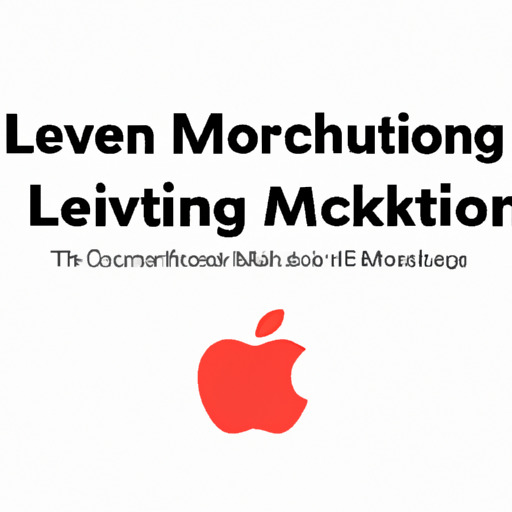Title: “Revolutionizing Machine Learning on the Go: Apple’s Latest Breakthrough with LLMs on iPhones”
Category: Technology
Machine learning has been one of the most rapidly advancing fields in technology, and its potential for real-world application is only increasing. However, one of the biggest challenges with this technology has been its limited accessibility on mobile devices. That is until now. In a recent news release, Apple has announced a groundbreaking method for running Large Language Models (LLMs) on iPhones. This development could have a significant impact on the use and integration of machine learning in our everyday lives.
For those unfamiliar with the term, LLMs are a type of artificial intelligence that are trained on large amounts of data to perform language-related tasks such as translation, text summarization, and question-answering. The most notable example of an LLM is OpenAI’s GPT-3, which boasts a massive 175 billion parameters. These models are incredibly powerful but require significant computational resources, making them difficult to run on mobile devices like iPhones. However, Apple’s new method has found a way around this limitation.
So, how does it work? Apple’s LLMs on iPhones utilize an innovative technique called Progressive Learning. This approach allows the model to learn progressively from previous tasks, enabling it to adapt to new scenarios quickly. In simpler terms, the more the user interacts with the LLM, the better it becomes at predicting and responding to their queries. This method greatly reduces the computational overhead, making it possible for LLMs to run smoothly on iPhones without sacrificing performance.
This breakthrough could have a profound impact on the applications of machine learning on mobile devices. With LLMs now accessible on iPhones, the potential use cases are limitless. Tasks that were once only possible on powerful servers or desktops can now be performed on the go, giving users a more efficient and practical experience. Imagine having a personal language assistant in your pocket, ready to translate any foreign language or summarize any lengthy document on demand.
There are also significant implications for the growth and development of artificial intelligence. With more widespread access to LLMs, developers and researchers can experiment and innovate with new possibilities for language-based AI on mobile platforms. This could pave the way for further advancements in natural language processing and understanding, bringing us one step closer to more human-like interactions with technology.
Of course, with any new technology, there are also concerns about privacy and data usage. Apple has emphasized their commitment to user privacy and security, stating that all LLM processing will be done locally on the iPhone, ensuring that no user data is shared with Apple or any third parties. Along with that assurance, Apple also announced that all LLM models will be tested for bias and fairness to prevent any discrimination in the AI’s responses.
In conclusion, Apple’s breakthrough method for running LLMs on iPhones has the potential to revolutionize machine learning and its applications on mobile devices. With Progressive Learning and a commitment to privacy and fairness, Apple is paving the way for a more seamless and secure integration of LLMs into our daily lives. It will be exciting to see the future advancements and impact that this breakthrough will have on the world of technology.
